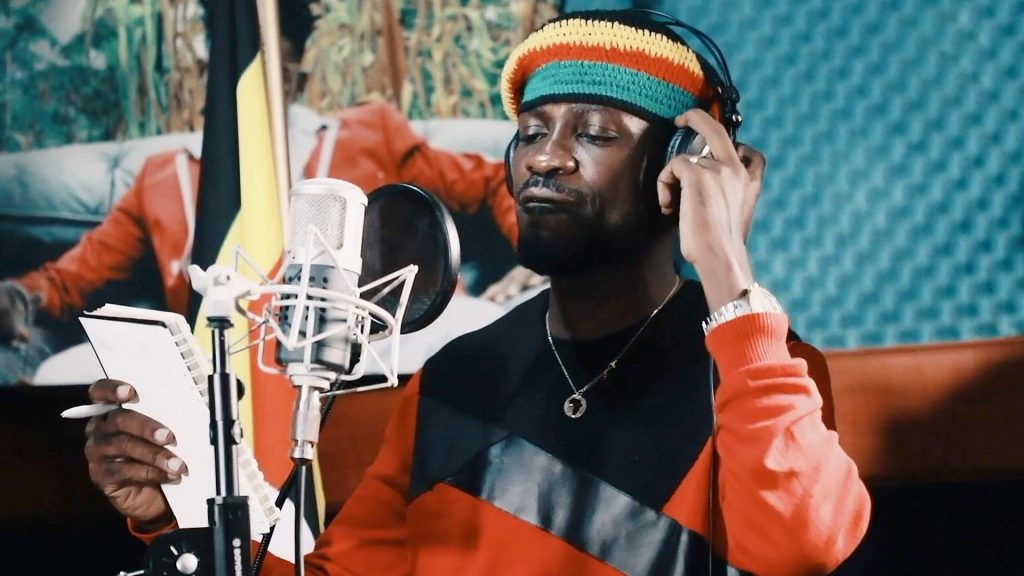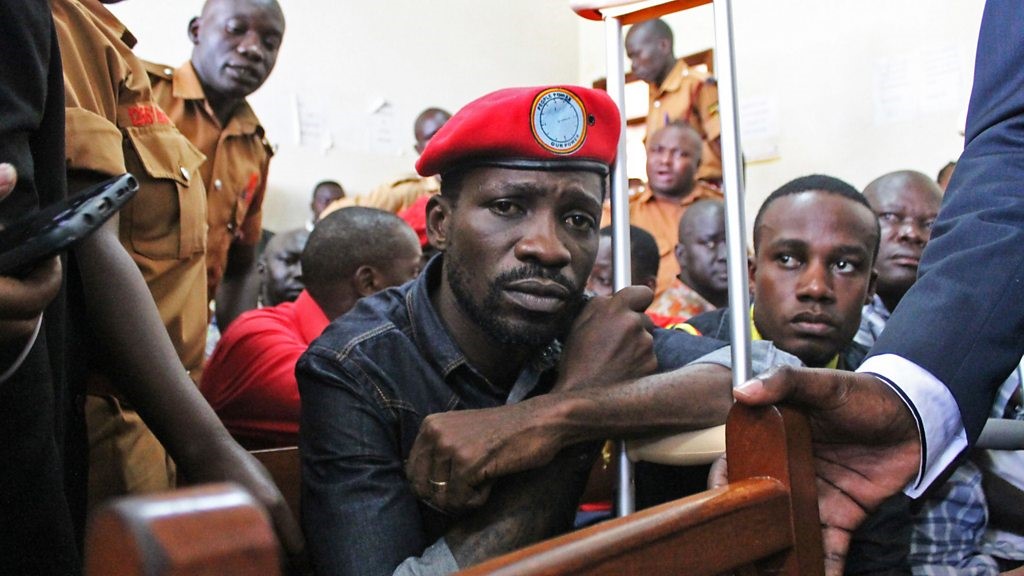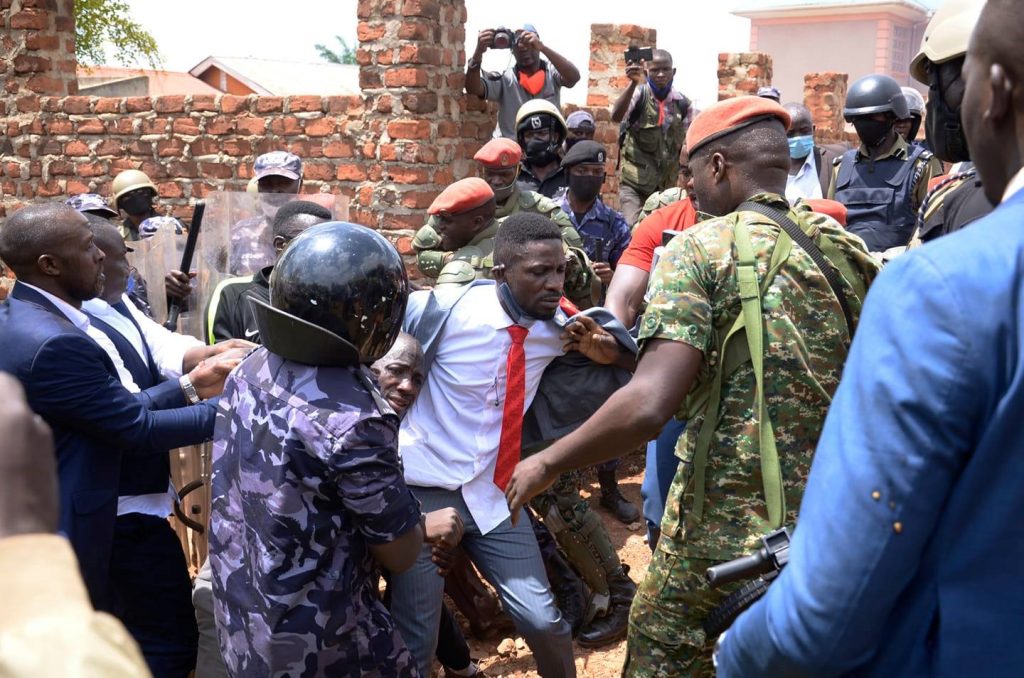Raised in the Kamwokya slums of Kampala and once crowned the “Ghetto President” through his music, Bobi Wine transformed into one of Africa’s boldest opposition figures, paying a heavy personal price along the way.
Robert Kyagulanyi, better known as Bobi Wine, grew up in the crowded Kamwokya ghetto. Poverty was a daily reality, and humiliation was a familiar companion. “I am a ghetto child,” he once said. “I know what hunger and humiliation feel like.” That personal history would later fuel his political message
Before entering politics, Bobi Wine made his name in music. In the early 2000s, as dancehall and Afrobeat swept across Uganda, he emerged with songs addressing corruption, inequality, and police brutality. While most entertainers avoided politics, Bobi Wine spoke directly to the struggles of the slums, gaining both local admiration and the scrutiny of politicians. Fame gave him a platform, but the ghetto gave him something real to say.

Entering the ring of power
In 2017, he made an unexpected leap into politics, running for parliament — and winning. But his ambitions didn’t stop there. He confronted President Yoweri Museveni, who had held power for over three decades. After his election, he told supporters: “I joined politics because I realized we were being lied to. We deserve better, and we must demand it.” His message resonated with young Ugandans disillusioned by broken promises.

Bobi Wine’s rise drew immediate pushback. The government banned his rallies, shut down his concerts, and repeatedly detained him. During a by-election in Arua in August 2018, security forces beat him and imprisoned him alongside others. When he emerged, bruised and exhausted, he spoke openly about the torture he endured. Human rights groups and doctors confirmed his account, though the government denied wrongdoing.
Despite the intimidation, he pressed on. In 2020, he announced a presidential bid against Museveni. The campaign quickly turned violent. Police shot protestors, hundreds were jailed, and Bobi Wine himself was placed under house arrest after the vote. “We are not criminals,” he declared. “Our crime is demanding freedom.”

Though the state portrayed him as a troublemaker, for many Ugandans and international observers, Bobi Wine represented a broader struggle — a fight against authoritarianism. He leveraged his fame into real political influence, risking reputation, safety, and freedom in the process.
Today, he leads the National Unity Platform under constant surveillance. His movement faces repeated blockages, his allies face arrests, and his travel is often restricted. Yet Bobi Wine remains steadfast. “I don’t fear prison or death,” he said. “I fear leaving my children in a country with no freedom.”
His journey from Kamwokya to parliament demonstrates that political change in Africa often emerges not from boardrooms but from the streets, the studios, and the lives of those who know hardship firsthand. For university students and observers beyond Uganda, his story is a vivid reminder that a voice from the margins can rise to shake a nation.
